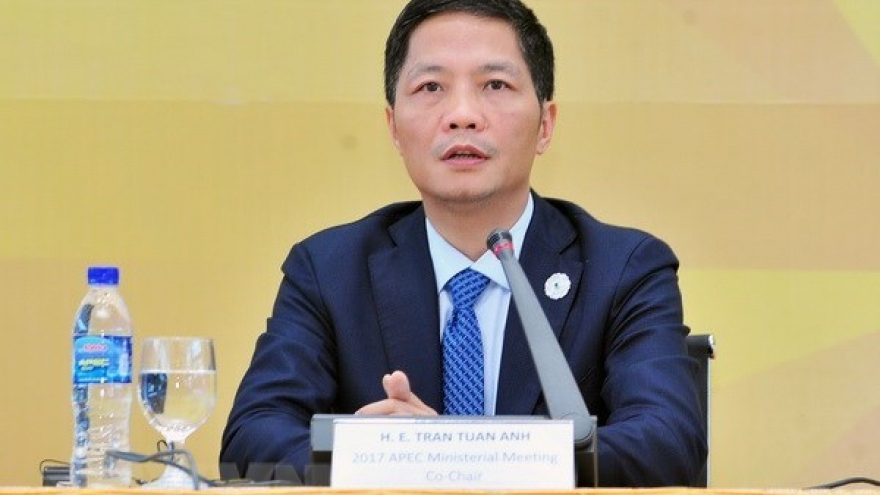US-China trade war set to up FDI flow into Vietnam
The US-China trade friction is expected to help boost foreign direct investment in Vietnam, fast-tracking an already strong trend of foreign firms veering away from China, where rising costs are worrying investors.
 |
A trade war between the US and China has been officially kick-started, with the Trump administration beginning to impose the first 25% tariff wave on US$34 billion worth of Chinese products. This wave will be followed by levies on another US$16 billion worth of Chinese goods in two weeks.
Meanwhile, China has inflicted the same import tariff rate of 25% on US$34 billion worth of 545 US import items. Previously, China had announced that it would fight back with retaliatory tariffs on US$50 billion worth of 659 US products.
However, experts said the duelling tariff plans will help Vietnam lure more foreign direct investment (FDI) from China, where production and labour costs are increasing. Vietnam is offering enterprises and investors a minimum wage that is 59% of China’s and 70% of Thailand’s.
“US companies, similar to companies from many other countries, are constantly adjusting their supply chains to stay competitive. It is possible that some companies will look at shifting production from China to Vietnam to avoid higher tariffs,” Adam Sitkoff, executive director of the American Chamber of Commerce in Hanoi, told VIR.
According to a US-backed law firm specialised in providing consultancy for US investors in Vietnam, with this war, foreign firms in China, including US companies, will find it more difficult to stay competitive as China faces higher tariffs from the US.
“They will have to think about another market apart from China. However, it is not easy for them to immediately shift their production out of China, because China is a global manufacturing hub and has joined the value chains of many global firms,” a consultant told VIR. “Instead of moving the whole of their facilities out of China, these investors tend to choose to supplement their China-based facilities with low-cost input sourced from other markets like Vietnam, which currently has a large network of free trade agreements (FTAs). Vietnam remains attractive to US investors.”
Lam Thi Quynh Anh, head of the Division for Domestic International Economic Integration under the Office of the Inter-agency Steering Committee for International Economic Integration, told VIR that with 12 signed FTAs, 10 of which have already taken effect, and four FTAs currently under negotiations, Vietnam will have FTA-based relations with nearly 100 partners in the world’s five largest market regions, namely Northeast Asia, Southeast Asia, Europe (both Eastern Europe and Western Europe), America (both North America and South America), and Asia-Pacific.
“Thus, FTAs-featuring tax slashes and market openings-will enable Vietnam to attract more FDI, including FDI from China, even if the US-China war become fiercer,” Quynh Anh said.
At the Vietnam Business Forum held two weeks ago in Hanoi, an annual policy dialogue between business associations in Vietnam and the government, Dragon Capital executive chairman Dominic Scriven said that Vietnam remains an attractive market for foreign investment.
“In the first half of this year, foreign investors withdrew US$5.6 billion from the Thai market, US$3.7 billion from the Indonesian market, and US$1.6 billion from the Philippine market, but they poured US$1.5 billion in the Vietnamese market,” Scriven said. “This means foreign capital flow is still pouring into Vietnam.”
Sitkoff told VIR that any economic gains from the potential shift of foreign investors might be offset by losses that Vietnam could incur because China is an assembly point for parts from the rest of the region-including Vietnam-before the final products are shipped to the US.
“It is important to remember that President Trump is committed to fair and reciprocal trade with US trading partners. Vietnam has a very large and growing trade surplus with the US, and we need to see greater efforts to balance this trade flow,” Sitkoff said. “That is why I urge the Vietnamese government to resolve market barriers and the challenges that US companies are facing here, including in automobiles, pharmaceuticals, medical devices, electronic payment systems, tax and customs issues, and trade facilitation.

